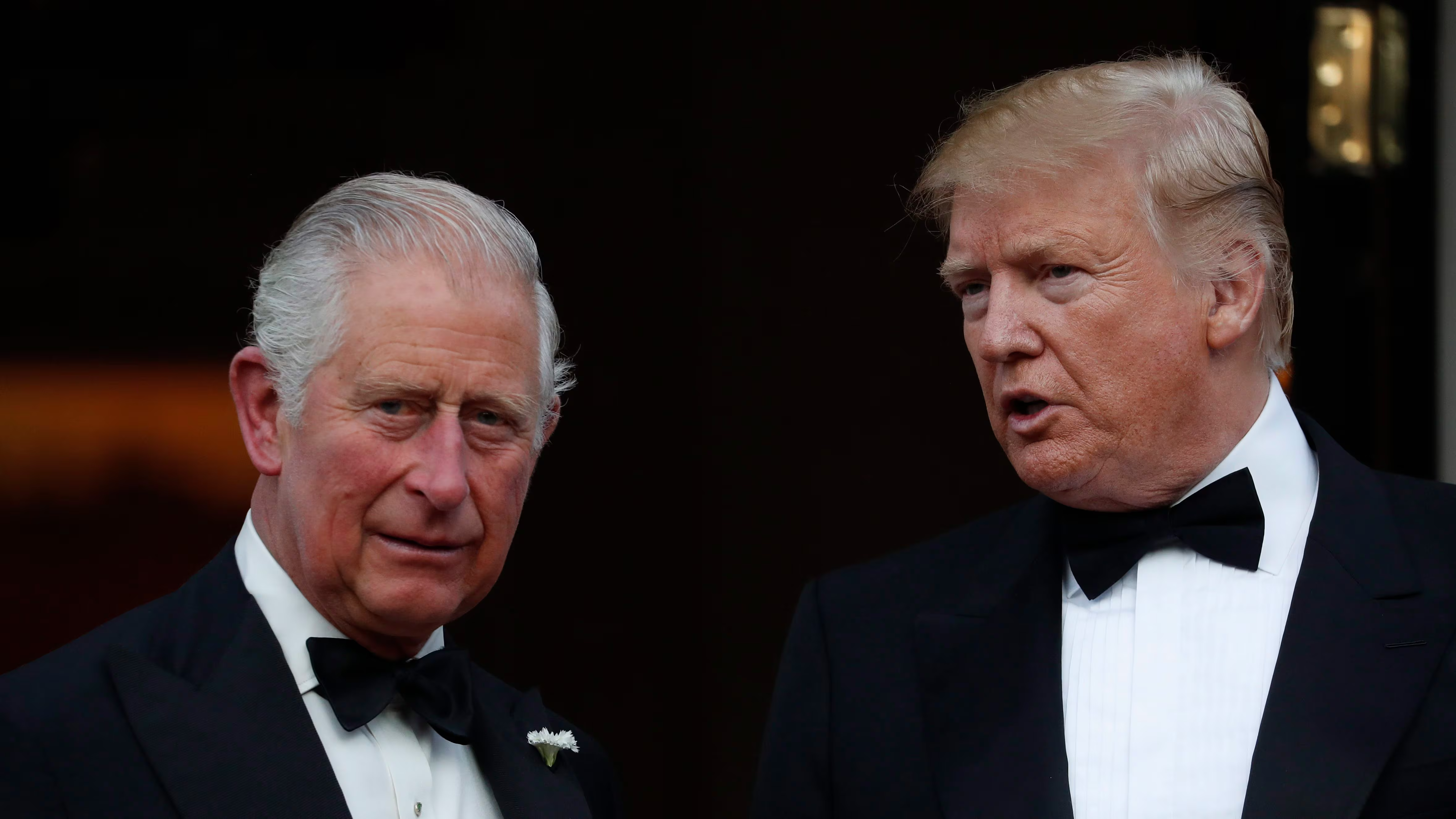Donald Trump’s second presidency has gotten off to a frenetic and controversial start, with executive orders signed and bold statements made on the international stage. One such statement resounding loudly is Trump’s wish that Canada become the 51st state—an idea that Canadian lawmakers and the public alike have rejected—as well as substantial tariffs he’s threatening to slap on Canadian imports.
Given the threats to Canadian sovereignty and the major repercussions such a tariff would have on Canada’s economy, you may be wondering why King Charles III, Canada’s head of state, has been silent in response to Trump’s proposition.
This is not a surprise. A Buckingham Palace spokesperson told the Canadian Press recently that Trump’s takeover threat is “not something we would comment on.” In fact, King Charles’ silence aligns with the monarchy’s long-standing tradition of political neutrality, especially those involving Commonwealth realms.
The Crown sometimes issues carefully worded statements that avoid direct political positioning when constitutional arrangements are at stake. Although it has not done so thus far in response to Trump’s threats, as we have not (yet) reached anywhere near the urgency of a crisis of constitution.
While many people might consider the monarchy and its representatives as nothing but symbolic figures in Canada, King Charles’ role as Canada’s sovereign goes beyond ceremonial duties. The King represents the Crown’s authority in Canada’s system of government, and the monarchy holds formal executive authority. His role in Canada also works independently from his position in other realms, including the United Kingdom. Canada’s constitutional monarchy framework would have major implications for any statehood discussion.
For this reason, it’s time the Crown adapted its approach to international disputes, while staying true to core constitutional principles.
Canada’s diplomatic foundation remains strong and the monarchy’s constitutional structure guides Canada’s approach to bilateral relations. This diplomatic framework provides stability that helps manage ground issues, from communications to shared energy networks. The sovereign must carefully manage this challenge, and make sure it remains a stable force in Canadian governance.
This constitutional challenge highlights Canada’s unique relationship with both the British Crown and the United States. The monarchy’s careful handling of political tensions shows its key role in protecting Canadian sovereignty while maintaining good relations with their southern neighbour.

Royal commentator Sarah Hewson says, “This is a political matter and therefore the King needs to leave it to the politicians and not get involved. Although he will most certainly be taking a keen interest and keeping a close eye. When it comes to President Trump, Sir Keir Starmer’s government has some work to do to repair diplomatic relations (after less than flattering comments emerged from Foreign Secretary David Lammy and claims the Labour party broke U.S. electoral law) and the King is Britain’s trump card. Downing Street will be keen to play that hand carefully.”
Britain’s restrained response
In response to Trump’s statements on Canada becoming the 51st state, the British government showed diplomatic restraint and emphasized Canada’s position as “an independent, sovereign nation, a member of the Commonwealth, the Five Eyes intelligence sharing partnership, and a NATO ally.” At first, other Commonwealth nations agreed with Britain’s measured approach and highlighted their shared values and historical connections with Canada.
NATO Secretary General Jens Stoltenberg expressed deep concerns about Trump’s broader approach toward allies. NATO leadership warns that suggestions about not defending allies “undermines all of our security” and “puts American and European soldiers at increased risk.” European leaders responded strongly to these developments. German Chancellor Olaf Scholz emphasized that “the principle of border integrity applies to every nation,” French officials confirmed Europe’s commitment to defend international law, and the British Foreign Secretary David Lammy called Trump’s comments destabilizing.
Some observers believe this diplomatic crisis represents the most serious challenge to Canadian sovereignty since the War of 1812. Amid Trump’s threats to impose tariffs unless Canada strengthens its border, Canadian officials announced a $1.3 billion investment in border security measures, widely seen as an effort to show their dedication to addressing U.S. concerns.
Prime Minister Justin Trudeau’s response left no room for doubt when he stated there is “not a snowball’s chance in hell” of Canada becoming a U.S. state. But this diplomatic tension carries weight. Every day, goods and services worth $3.6 billion cross the U.S.-Canada border. Canada stands as America’s biggest foreign supplier of steel, aluminium, and uranium.
The idea of Canada becoming the 51st state is also hugely unpopular with residents and lawmakers alike. Recent Leger poll results show only 11% of Canadians want their country to become America’s 51st state. The opposition to Trump’s controversial idea runs deep across political lines, with around 90% of Liberal, NDP, and Green party supporters strongly rejecting this proposition. Bloc Quebecois voters showed the strongest pushback at 96%.
Trump’s suggestion of Canadian statehood caused diplomatic tensions we’ve never seen before. The royal palace’s silence on this matter lines up with its usual protocol, but the constitutional impact remains important since King Charles III serves as Canada’s head of state. This situation emphasizes how delicate international relations can be and why we must respect territorial boundaries. This diplomatic crisis also ended up showing us something important. Even the strongest friendships face new challenges in today’s political world. Canadian leaders stand united with international backing. Their response proves that Canada’s independence stays strong despite economic pressure and provocative words from their southern neighbour.
With files from the Canadian Press































































































